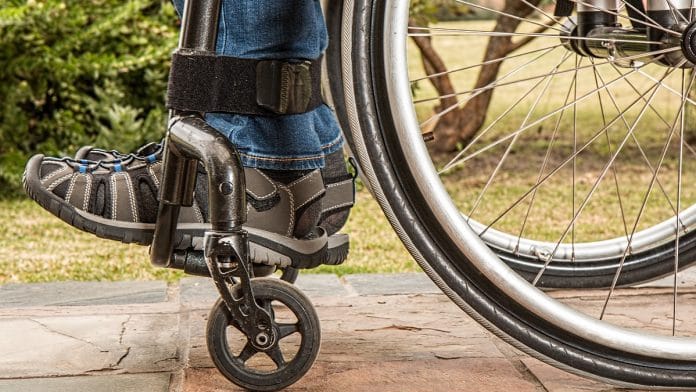On 29 July, the Union government released draft amendments to Rules 17 and 18 of the Rights of Persons with Disabilities Rules 2017. Prima facie, the objective of such an amendment is to tighten the requirements for obtaining a disability certificate. This action by the government appears to be influenced by a recent controversy involving a former trainee IAS officer misusing a disability certificate. However, this move is expected to create further delays and additional barriers for Indians with disabilities seeking certification.
The proposed amendment to Rule 18 increases the certification period from one month to three months. A pressing concern is that there is no clarity on when the three-month period begins. Currently, disability certificates must be issued within one month “from the date of receipt of the application”. The amendment eliminates this deadline and stipulates that the certificate or Unique Disability ID (UDID) be issued within three months “if any disability is diagnosed”. Thus, it is unclear whether this three-month period will start from the date of the application or from when the medical authority confirms the disability.
The existing timeline of one month is not fulfilled in most cases. One of the co-authors of this article applied for certificate renewal and has not received it even after six hospital visits and more than 50 days since applying. The recent amendment is likely to further delay certificate issuance.
This extension of the timeline exacerbates the difficulties of persons with disabilities (PwDs) in obtaining certification for education or employment, where documentation deadlines are often tight. Instead of diagnosing the underlying issues in the current system, the new rules will lead to further setbacks and complications.
Also read: Disability rights intersect with economy, commerce, health. Policy should reflect that
Complex assessment process
Amendment to Rule 17 of the RPwD Rules proposes introducing the mandate to submit identity proofs in addition to the previously required Aadhar number. The process for availing Aadhar card is already tedious for many PwDs who don’t enjoy the exemption from the biometrics requirement under Aadhar laws. Additionally, the application for issuance of a disability certificate or UDID must be submitted only to the medical authority or any other competent ‘medical’ authority at the applicant’s place of residence. The rationale for adding the term ‘medical’ is precisely unclear and may be directed to exclude authorities like blind school principals and those who have certification powers in special cases.
Earlier this year, the central government issued revised assessment guidelines to simplify the process for PwDs. The certification process, carried out by state governments, is based on these guidelines and specifies medical authorities responsible for assessments. However, the process at the state level suffers from a lack of expertise and know-how in the medical assessment panels.
The assessment process, based on the medical model of disability, grants significant discretion to doctors. The time required for proper assessment varies across states, districts, and hospitals. The current certification process involves multiple examination levels that vary across disabilities, leading to inconsistent diagnosis of disability percentages. This inconsistency is particularly problematic for individuals with invisible disabilities or symptoms, such as multiple sclerosis, thalassemia, sickle cell, and learning disabilities, among others. Such stringent rules and discretion with medical authority with an extended timeline for certification can be exclusionary in practice.
Also read: Puja Khedkar did what Indian society readily accepts—see corruption as aspirational
Creating ambiguity
The proposed amendment also formalises the UDID issuance process by giving it statutory authority. It introduces three types of UDIDs: White (for less than 40 per cent disability), yellow (40 per cent to 80 per cent) and blue (more than 80 per cent). However, this sub-categorisation without specification of the corresponding benefits can lead to further confusion in the assessments and benefits allocation. Last year, the central government made UDID compulsory for availing of the facilities of 17 centrally sponsored schemes. The sub-categorisation might lead to exclusion or preferential treatment within such schemes or potentially stigmatise holders of white or yellow UDID cards.
The UDID is still not widely accepted for accessing various facilities. For example, the Ministry of Railways and several state-level schemes still require separate certifications for benefits. The disability certificates/UDIDs often need further medical assessments for exams like UPSC and NEET. This multiplicity of certifications adds a bureaucratic burden, risks contradictory assessments, and may lead to confusion and denial of benefits. It raises the question of whether these extensive certification processes are enabling provisions for PwDs or merely creating artificial barriers to their empowerment.
Amendment influenced by social outrage
The proposed changes reveal a misguided belief that the primary issue is the prevalence of fake certificates rather than the systemic barriers PwDs face. Extending the certification period and implementing stricter assessment or sub-categorisation measures could further marginalise PwDs with disability percentages close to 40 per cent or those with invisible disabilities. Such measures contradict the spirit of the Rights of Person with Disabilities Act, 2016, which seeks to promote inclusion and accessibility for PwDs. Certification is a fundamental prerequisite for the inclusion of PwDs.
These new requirements threaten to obfuscate the real issues—namely, the system’s rigging by privileged individuals. Genuine PwDs already face immense difficulties in obtaining certification, and the recent amendment can make this process even more arduous. It is disheartening that the amendments have been encouraged by public fear rather than the need to promote true inclusion.
Shashank Pandey is a lawyer and founder of the Politics and Disability Forum. Srijan Rai, is a policy researcher and Associate, Public Policy at The Quantum Hub.
(Edited by Ratan Priya)







For years, the Income Tax dept accepted my Disability certificate issued in 2001 for claiming benefits under the IT Act. But this time they insisted on a fresh certificate. I applied on the UDID website yesterday after visiting a Public Hospital listed on the UDID website and am now keeping my fingers crossed.
Thanks for highlighting the concerns faced by PWDs.